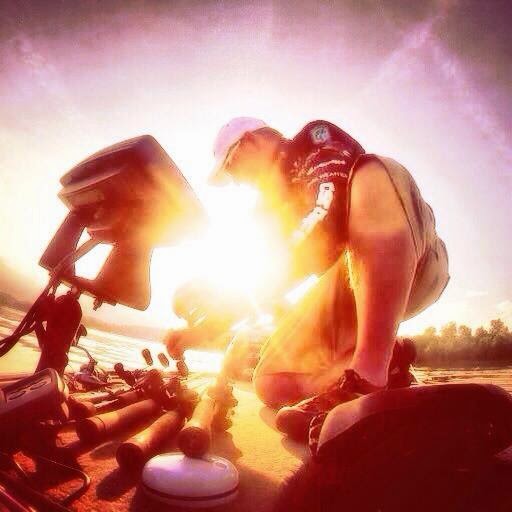I remember when I heard that New York State was banning lead sinkers. At first I thought nothing of it, but I quickly had a heart attack when I saw the price of Tungsten. I thought it was going to mean the end of my worm fishing days! I couldn't see a benefit, and I didn't know all the environmental hazards associated with lead that had prompted that legislation. That 2002, over ten years ago, and since then we've all come to know the harm that lead and lead production can cause. But do you know the benefits to Tungsten?
1. Size Matters
Tungsten weights are generally comprised of 70% to 97% tungsten, an element much harder, denser, and heavier than lead. For the sake of this article, I'm going to be focusing on weights made by Elite Tungsten, a company that produces only 97% weights. This composition is significant because it allows anglers to use a smaller profile weight, thereby reducing hangups and eliminating costly time spent having to free your line. When compared to lead, the size of tungsten is much smaller, which will mean having a more realistic presentation of your bait by not having a two inch sinker in front. While that advantage might seem minimal at best on a farm pond, fish that get pounded on lakes like Hartwell, Douglas, or Smith Mountain can be easily turned off by abnormalities like that.
2. A Diamond In The Rough
Elite Tungsten weights are bored with a diamond drill bit, the only company to do so, eliminating the need for inserts that other companies need to prevent chafing of your line. Being insert-free and smooth allows you to use a lighter line without fear of having it broken by your sinker, translating to fewer rigs breaking off. The smaller line diameter can frequently lead to increased numbers of fish in your boat, especially in waters that are heavily fished or that have high visibility (very clear water). Catching more fish is always a good thing.
3. Sounds Good To Me
Being denser and harder than lead creates more sound. While there's no clear data to suggest how many strikes are generated as a result of sound alone, it is certainly a contributing factor. Tungsten can also deliver improved vibration to your hand, allowing you to better determine bottom composition which can be key to finding big fish! For example, when bass are keying on crawfish, being able to find those rocky areas that are intermixed with grass in deeper water is often done only by being able to feel it in your rod. My buddy Brian Campbell will often say "God it feels good down there" when referring to a little outcrop of small rocks on the bottom. It's not enough to be in an area that's 20 yards wide, you need to know where in that area are the smaller 3 foot by 3 foot subsections of rock that are there. Those are the areas that the fish are holding tight to.
4. Don't Drink The Water
Lead is bad. We know that now. It's bad in our drinking water, it's bad to produce, it's just bad. While Tungsten is more expensive, it's a small price to pay now to have a better environment later. Waiting too long could lead to damage that is far greater financially, say nothing of what lead poisoning could do to the fish. Our lakes and rivers are not dumps, and we have the ability to do better than we did in the past. Doesn't that obligate us, as anglers?
5. You'll Catch More Fish
That's the ultimate goal, is it not? Not just catch fish, but catch A LOT of fish. If this weight can help you lose fewer baits via snags, retie less often, have your lure in the water MORE often, help you feel more of the bottom and feel more bites, not chafe your line thereby preventing breaks while fighting fish or snags, AND do a little bit to help protect the future of the sport we love so much, why wouldn't you try it?
.jpg)


